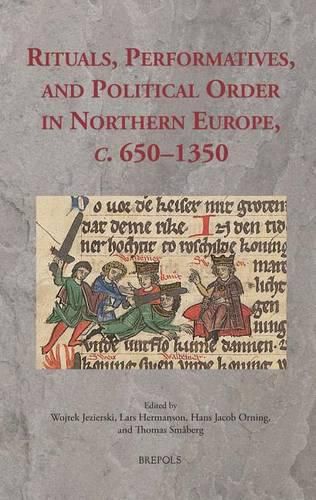Readings Newsletter
Become a Readings Member to make your shopping experience even easier.
Sign in or sign up for free!
You’re not far away from qualifying for FREE standard shipping within Australia
You’ve qualified for FREE standard shipping within Australia
The cart is loading…






This multidisciplinary volume draws together contributions from history, archaeology, and the history of religion to offer an in-depth examination of political ritual and its performative and transformative potential across Continental Europe and Scandinavia. Covering the period between c. 650 and 1350, this work takes a theoretical, textual, and practical approach to the study of political ritual, and explores the connections between, and changing functions of, key rituals such as assemblies, feasts, and religious confrontations between pagans and Christians. Taking as a central premise the fact that rituals were not only successful political instruments used to create and maintain order, but were also a hazardous game in which intended strategies could fail, the papers within this volume demonstrate that the outcomes of feasts or court meetings were often highly unpredictable, and a friendly atmosphere could quickly change into a violent clash. By emphasising the conflict-ridden and unpredictable nature of ritual acts, the articles add crucial insights into the meanings, (ab)uses, and interpretations of performances in the Middle Ages. In doing so, they demonstrate that rituals, far from being mere representations of power, also constituted an important mechanism through which the political and religious order could be challenged and transformed.
$9.00 standard shipping within Australia
FREE standard shipping within Australia for orders over $100.00
Express & International shipping calculated at checkout
This multidisciplinary volume draws together contributions from history, archaeology, and the history of religion to offer an in-depth examination of political ritual and its performative and transformative potential across Continental Europe and Scandinavia. Covering the period between c. 650 and 1350, this work takes a theoretical, textual, and practical approach to the study of political ritual, and explores the connections between, and changing functions of, key rituals such as assemblies, feasts, and religious confrontations between pagans and Christians. Taking as a central premise the fact that rituals were not only successful political instruments used to create and maintain order, but were also a hazardous game in which intended strategies could fail, the papers within this volume demonstrate that the outcomes of feasts or court meetings were often highly unpredictable, and a friendly atmosphere could quickly change into a violent clash. By emphasising the conflict-ridden and unpredictable nature of ritual acts, the articles add crucial insights into the meanings, (ab)uses, and interpretations of performances in the Middle Ages. In doing so, they demonstrate that rituals, far from being mere representations of power, also constituted an important mechanism through which the political and religious order could be challenged and transformed.